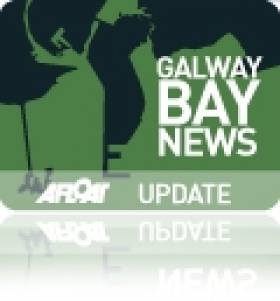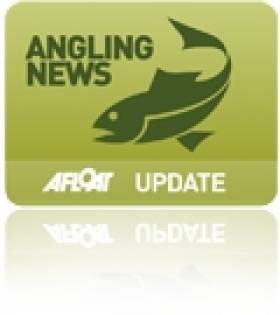Displaying items by tag: National Inland Fisheries Forum
Fisheries Forum Lambasts Minister Over Galway Bay Fish Farm Decision Process
#FishFarm - The National Inland Fisheries Forum (NIFF) has criticised as "flawed" the consent process regarding the proposed deep-sea fish farm in Galway Bay which has stirred much controversy in recent weeks.
In a letter to the Department of Agriculture, Food and the Marine as part of the public consultation process, NIFF chair Derek Davis writes that the forum "considers the consent process to be flawed" as a result of "the decision making function being exercised by the Minister for Agriculture, Fisheries and Food" in a number of circumstances, including where:
- the applicant - Bord Iascaigh Mhara (BIM) - "has several appointees of the said minister at board level";
- the State fisheries board "receives funding and policy directions from the minister's department";
- public announcements made on the proposals and related concerns "indicate pre-judging of the issues";
- any appeal following the minister's decision "would be dealt with by appointees of the minister"; and where
- the "specific statutory basis" on which BIM authorises aquaculture operations "has not been adequately set out".
The letter reiterates Inland Fisheries Ireland's (IFI) criticisms of the Environmental Impact Statement (EIS) carried out on the proposed location of the 15,000-tonne organic salmon farm off the Aran Islands, stating the NIFF's believe that the document "is deficient in a number of areas" such as not adequately addressing wild salmon migration routes, and making presumptions on the potential impact of sea lice and escaped farmed salmon on adjacent fisheries.
The forum also has concerns regarding the public consultation itself, noting that requests for "specific scientific information used to underpin statements in the EIS" have not been followed through.
"The forum believes that on the basis of the information supplied, the minister is not in a position to make a positive decision on this application," writes Davis. "To do so would represent a failure to adhere to the precautionary principle" which applies "where there is uncertainty as to the existence or extent of risks".
The letter in full is available as a PDF to download HERE.
First Meeting of National Inland Fisheries Forum
Seasonality, climate change and the environment were the hot topics discussed at the inaugural meeting of the National Inland Fisheries Forum in Athlone last Thursday.
Inland Fisheries Ireland chief executive Dr Ciaran Byrne hosted the forum, whose 60 voluntary members - drawn from various stakeholder groups - are is set to meet twice annually.
The day saw TV personality and keen angler Derek Davis installed as chairman of the forum, following his appointment by the Minister for Natural Resources.
Davis noted that the forum "can influence policies for the protection, management, development and conservation of this valuable resource now and for the generations to come."
In his own address to the forum, Dr Ciaran Byrne highlighted the members' collective experience in fisheries management on Ireland's inland waterways.
“A number of you have served as members of the central and regional fisheries boards, some for over 20 years," he said. "As members of the forum you have the opportunity to discuss and advise on the future of inland fisheries in Ireland. IFI looks forward to receiving your considered views on the various issues.”
In a message to the meeting, Minister Pat Rabbitte stated his belief "that the forum will provide a meaningful channel of communication between the stakeholders and management of the inland fisheries resource".






























































